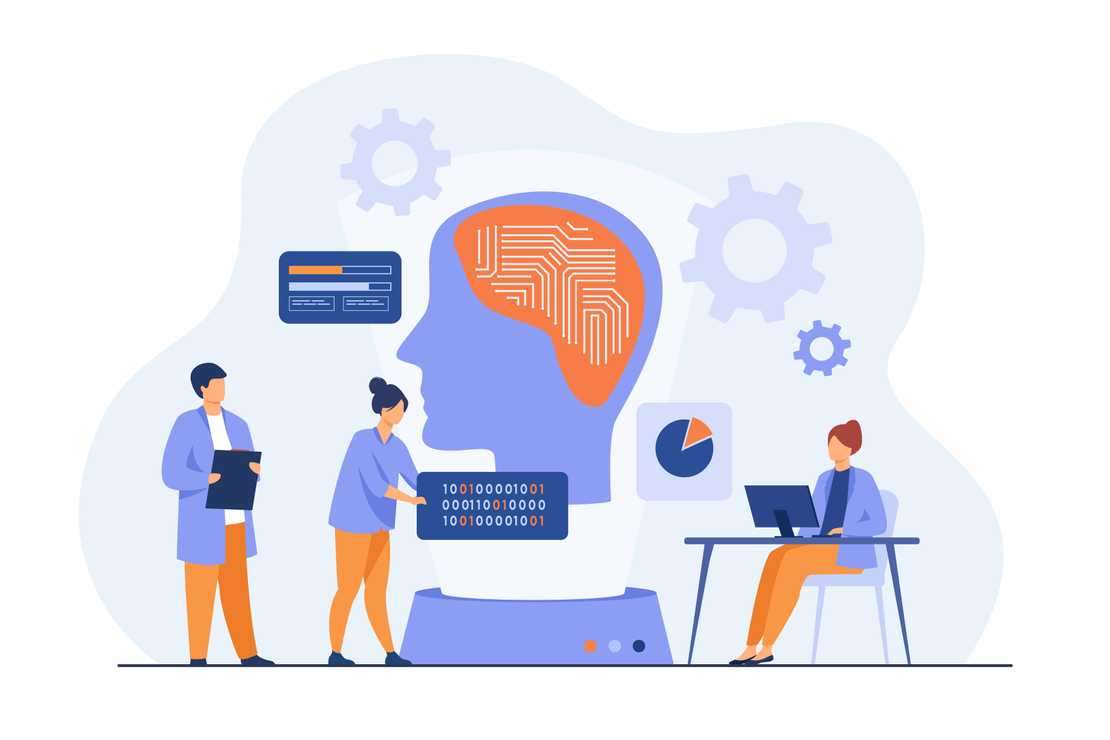6 Business Use Cases for Machine Learning
Although we are not aware of that, the future is already here. Self-driving cars, instant translations, personalized shopping suggestions, movie or series recommendations that might interest you. Thanks to Machine Learning (ML) our lives are changing in the last few years and what we envision in the next decade may change the future of business.
Do you know everything you need to know about Machine Learning?
Machine Learning is a discipline of Artificial Intelligence, which uses algorithms to find patterns among all the data provided to it. Its objective is to make predictions with the data provided, whether they are images, structured or unstructured data, etc.
When Machine Learning is used, it is not necessary to constantly program its evolution because it autonomously performs the work it has been asked to do. This discipline has gained relevance in recent years thanks to Big Data, but it was first used in 1959.

How companies use Machine Learning to achieve efficient and quantifiable results quickly
In recent years, this technology has evolved by leaps and bounds. Machine Learning models are very versatile and useful for the business world. Their ability to adapt to changes (in data) and machine learning, allows forecasting future variables that have achieved accuracies of over 90%.
The use cases for machine learning are literally infinite, depending on the problem to be solved, the starting data and the data processing implemented. However, from Biuwer’s point of view, a business data analysis platform, we consider the following six cases to be very useful and applicable to a large number of companies.
1. Personalized recommendations that build customer loyalty
Machine Learning helps deliver highly personalized experiences, which can translate into improvements in customer engagement, conversion, revenue and margins.
Examples include purchase suggestions or recommendations on e-commerce platforms. Initially, the interaction history of each user is analyzed (purchases, product views, searches, etc.) and compared with other similar users. In this way, the online store can propose content of interest to the user with greater accuracy, in order to achieve the objectives set (e.g. maximize sales, eliminate perishable stock, promote a product line, etc.).
Netflix is another example, the platform suggests series or movies that we might like based on what we have previously viewed. When it comes to buying or using a product or service, consumers expect a personalized and real-time experience. With Machine Learning we achieve this type of fully personalized experience, which will improve customer engagement.
2. Improve customer service and reduce costs
Machine Learning can help turn a contact center (telephone or other channels, chat, whatsapp, etc.) into a profit center by reducing waiting time for interactions (calls, messages,...), increasing agent productivity and satisfaction, reducing costs and identifying business improvement opportunities.
Applying Machine Learning in a Contact Center can improve your customers' experience, with continuous improvement through data analytics. The huge volume of data received by the Contact Center is an essential resource for the progressive adjustment and improvement of the implemented algorithms. These are some of the main benefits:
- It reduces the volume of calls, since an automated rapid response to a given problem can be generated before it could be handled by a real person. A bot is capable of detecting recurring incidents to send a notification to the technical service for resolution or, for example, making an automatic publication in Social Networks.
- Improved personalization, allowing you to get to know your customers better, identify their needs and preferences with precision, in order to offer them a much more personalized treatment. Technology already allows you to prepare a set of automated responses that are not perceived as impersonal or cold, because they are adapted to each person.
- Prioritize email responses. Machine learning applied to language is a specific type of algorithm, applicable to the analysis of emails using Natural Language Processing (NLP). This makes it possible to automatically classify emails according to their urgency or importance. Thus, the support team can save a lot of time in customer service and respond more effectively to relevant emails.
- Increase revenue through personalized selling. Algorithms can detect potential sales opportunities in a given interaction with the customer, indicating what product your customer might need based on past purchases, suggesting products based on conversations, etc.
3. Detection of fraudulent transactions
Worldwide, billions of US dollars are lost every year due to online fraud. Many of the applications that are designed to offer protection against potential online fraud rely on rules that do not keep pace with the ever-changing tactics of hackers, malware or malicious actors.
When it comes to SMEs lending, for example, where fraud detection is a key concern of the process. Predictive models are being trained to assess risks by analyzing financial fraud cases. To determine risks based on application characteristics, the models then analyze data such as the credit application process and the likelihood of fraud.
New antivirus and malware detection engines already make use of machine learning to boost scanning, speed up detection and improve the ability to recognize anomalies. Experts agree that fraud prevention is difficult because fraudsters are constantly changing and adapting. So, the best technology to combat fraud is one that can change and adapt as fast as the fraudster's tactics.
4. Analyzing multimedia assets to increase value and create new insights
The field of modern entertainment includes an infinite number of resources (audio and video, among others), which are invaluable in providing the user with an enhanced experience. It is of vital importance to know the target audience to whom the content is addressed, which will have even greater value with improved personalization and monetization.
However, many companies fail to optimize their multimedia content to take full advantage of it. With Machine Learning you can reap benefits in four key areas:
- Improved content search and discovery.
- Improved accessibility through closed captioning and localization
- More effective content monetization
- Improved compliance and moderation policies for multimedia content.
5. Fast and accurate forecasting to match customer demand
Predicting what customers want, in what quantity and when they will want it is critical to the success of any organization.
Sales and finance departments depend on accurate demand metrics to meet customer demand, build inventory and optimize cash flow.
You can use Machine Learning to compare warehouse stocks between different reference periods to make product demand forecasts. Visually, data is often compared in time series graphs, allowing you to detect trends and play with data from the past, past events, the present, and estimates for the immediate future. Models and algorithms usually incorporate the necessary parameterizations and variables, such as product characteristics, geographic location, or meteorological estimates, to achieve more accurate predictions and greater final value.
As we say, even the weather forecast is a factor to take into account when it comes to a new launch or an event that takes place physically in one location (i.e., not online). Thanks to the application of Machine Learning, we are obtaining more reliable data every day, which can help us when making decisions, such as deciding the dates of certain events (store openings, VAT-free days, promotions and discounts in physical stores, etc.), depending on whether there will be weather imponderables with a certain probability in a specific location.
6. Streamline decision-making by analyzing data stored in documents automatically
Companies generate huge amounts of documents that constitute a treasure trove of great utility for the organization. On the other hand, manually processing large volumes of data is a very cumbersome and time-consuming task.
Using Machine Learning, your company can access and use the data contained in the documents when needed. This allows you to obtain additional information on which you can base business decisions on a daily basis.
How we are applying Machine Learning in Biuwer
Biuwer is a data platform that has among its pillars the ease of use for the end user. Given the complexity and variety of possible applications in the field of Machine Learning, Biuwer's approach is to be eminently practical and provide elements of value with the least possible complexity for the user. We know that we will not reach all use cases, but we believe that the value provided to a wide variety of companies and businesses can be high.
Taken to the business environment, the basis is the use of time series for monitoring KPIs (Key Performance Indicators), for which an organization has historical data. Based on predefined mathematical models we propose a prediction of a configurable future interval.
This can be completed with further input parameters up to a "What-If Analysis", in which by modifying certain parameters, Biuwer automatically recalculates the data series, both in the past and in the future, by correlation with the rest of the data present in the dataset. This type of analysis is very visual and helps to understand very common business cases, for example:
- Keeping all other variables the same, what would happen if prices were increased by 3.5%. How would it affect such and such KPI?
- Conversely, what should be the percentage increase or decrease in prices to obtain a certain profit margin?
- How would the cash flow evolve, making possible forecasts based on drivers, such as the automation of invoice payment?
- What would be the sales result forecast if the sales team is increased by five people?
- How would it affect the final result of the fiscal year if salaries (of the entire staff, of a selection of departments or of an individual selection of people) were increased by 2%?
- And many, many more...
In the following video, Alberto Morales (CEO of Biuwer) explains more details about how we approach the use of machine learning in Biuwer.

Do you want to know more about the possibilities of incorporating Machine Learning to your data? You can contact us at any time. Don't miss the opportunity to try a demo of Biuwer to find out what benefits it has for your company. Take advantage of a free starter pack to speed up the implementation and get the most out of your data.